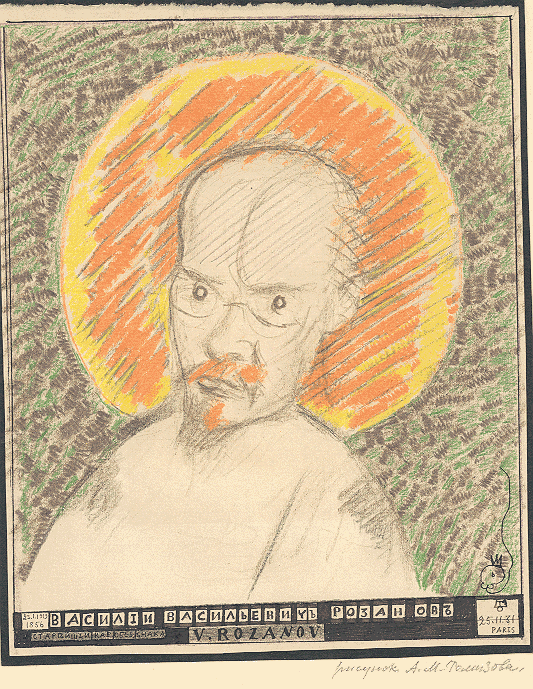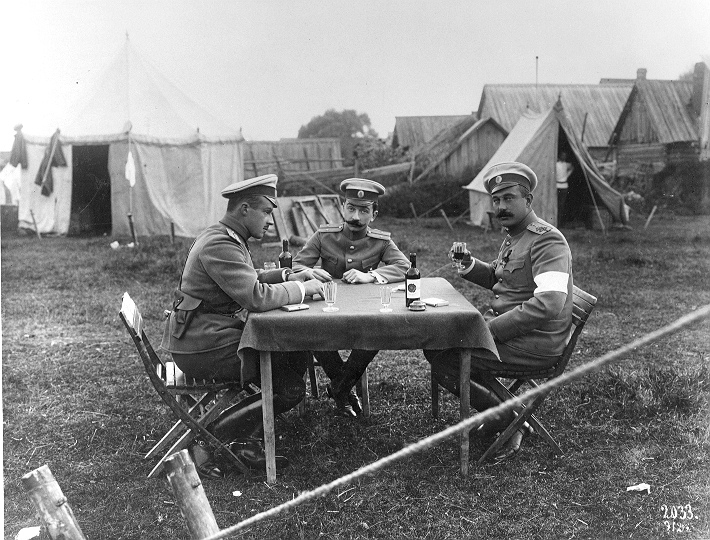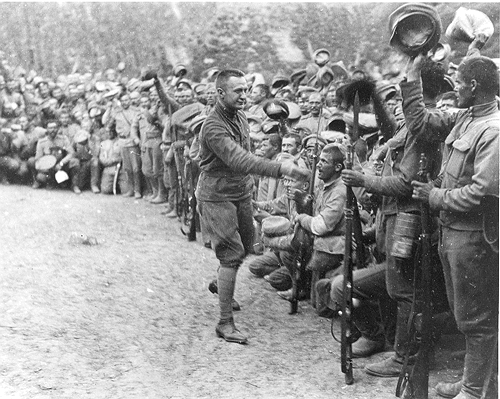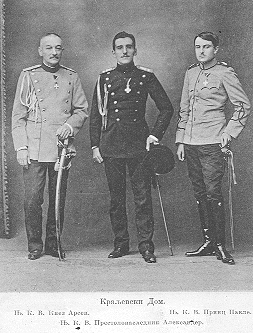Collections
The Bakhmeteff Archive consists primarily of letters, diaries, memoirs, tapes, photographs, and other documentary materials, currently containing at least 1,680,000, items in more than 1,500 collections. These include 73,000 items in the three collections on deposit from the Free Ukrainian Academy of Sciences in New York (UVAN), and 43,000 items in other deposits. As of September 2002, qualified researchers have access to 991 collections.
The Bakhmeteff Archive operates as part of Columbia University's Rare Book & Manuscript Library. Questions about access to the Bakhmeteff Archive and requests for permission to publish material from the Archive should be directed to Tanya Chebotarev, Curator of the Bakhmeteff Archive: tc241@columbia.edu & 212-854-3986.
The oldest material in the Bakhmeteff Archive dates from the fifteenth century. The main focus of the collection, however, has been on twentieth century Russia and the Soviet Union, and on Russian emigration after the 1917 revolution and World War II.
The Archive's holdings have four main focal areas, each consisting of materials of both personal and institutional origin.
Prominent Literary Figures of the Russian Emigration

The first area contains materials from, or pertaining to, prominent literary figures of the Russian emigration such as Bunin, Aldanov, Remizov, Tsvetaeva, Khodasevich, Zaitsev, Teffi, Don Aminado. Included in this group are the archives of scholars - the historians Georgii Vernadskii and Mikhail Florinskii, the philosophers Semion Frank and Vasilii Zenkovskii, as well as the papers of literary critics and journalists, such as Vladimir Weidle and Alexander Bacherac. There are also some scattered materials pertaining to pre-revolutionary writers. Of great interest is the correspondence of Alexander I. Herzen, Russian writer and socialist, with Tatiana Astrakova.
Institutions and Organizations

The second area in the collection consists of the records of institutions and organizations. Most of them are émigré benevolent and professional organizations, mainly from France, such as Union of Writers and Journalists, associations of members of military units, the Committee for the Education of Russian Youth in Exile, the Union of Russian Drivers, the YMCA records in Paris and the like. This category also includes the papers of church organizations and political parties of pre-Revolutionary and Revolutionary Russia. The most significant are the papers of Grigorii Aleksinskii, a pre-Revolutionary Russian Social Democrat. Aleksinskii, the Bolshevik member of the Second Duma, assembled an extensive collection of party documents and private papers related to the early history of the RSDRP, with special emphasis on the activities of the Bolshevicks in the pre-1914 years.
Historical Holdings

The archive extensively documents the major historical events that were at the origin of the Russian emigration, that is, the last phase of imperial Russia, the years of revolution, and the civil war. The historical holdings of the archive are as significant as the literary ones. Numerous memoirs of participants and witnesses deal with the main political and social developments in Russia in the twentieth century.
The Bakhmeteff Archive also holds a unique collection of so-called commissioned memoirs - reminiscences, written by Russian émigrés for a modest compensation. This "memoir initiative" started in the early fifties in France and covered an extremely wide variety of topics, including: the imperial family, the First State Duma, World War I, the Russian Red Cross, the Provisional Government, the Bolshevik takeover in 1917 and the Civil War, the Russian Army and Navy, Russian immigration in Austraila, military and civil institutions and major political parties.
Eastern Europe

The fourth area of the archive's strength is made up of materials pertaining to Eastern Europe. Polish literary materials are to be found in the collection of former Columbia University professor Manfred Kridl, and Radio Liberty materials are held in the papers of the Ukrainian journalist Liubov Drazhevska. Czechoslovakia and Yugoslavia are represented by materials stemming from the papers of political figures, such as Jaromir Smutny and Prince Paul. Materials on the theory of literary translation are in the Vera Blackwell Collection and in the Mirra Ginsburg Papers. Most of the materials in the Bakhmeteff Archive are in Russian, followed, in approximate order, by English, Ukrainian, French, Hungarian, Serbo-Croatian, Polish and Czech.
Since the archive is a living institution, its holdings are constantly growing in an effort to record and preserve a full memory of the past. A few examples of major collections which have arrived in the last ten years are the papers of Boris Moiseevich Sapir, the New York Group, Charles Richard Crane, Vera Blackwell, Mark Popovskii, Sergei Vodov, and YMCA Records in Paris. Please contact the curator for additional information.